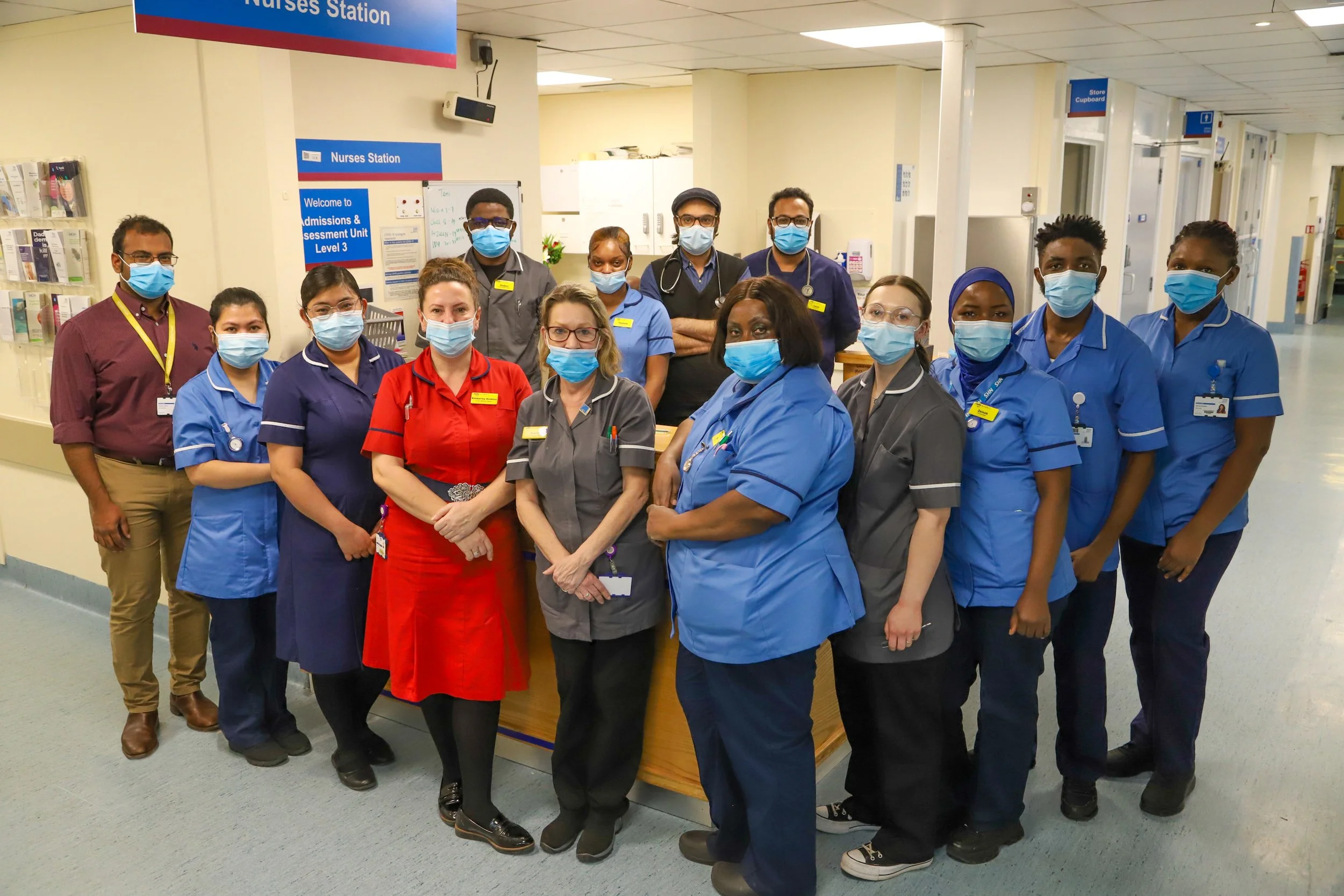News
Click on the buttons below to find articles on a particular subject:
Research pinpoints inflammation source behind atherosclerosis
Scientists have discovered in mice how high cholesterol causes blood vessels to become inflamed, a necessary prerequisite for atherosclerosis – the “hardening of the arteries” responsible for most heart attacks and strokes.
NHS to speed up diagnosis and treatment of heart and respiratory conditions
Hundreds of thousands of patients could benefit from a quicker diagnosis for a range of heart and respiratory conditions, through ambitious new NHS plans for fast-tracked tests and checks.
New research finds easier way to detect serious heart condition
Researchers from Barts Heart Centre, part of Barts Health NHS Trust, and University College London, have shown that combining two scan technologies can detect a serious heart condition before symptoms and signs appear on current tests.
Research shows heart condition can be reversed
Three men who had heart failure caused by the build-up of sticky, toxic proteins are now free of symptoms after their condition spontaneously reversed in an unprecedented case described by a team at UCL and the Royal Free Hospital.
Remote monitoring pilot launched in heart failure service
Royal Devon University Healthcare NHS Foundation Trust is piloting a remote monitoring system for selected patients with heart failure in Northern Devon over the next six months.
Leicester volunteers sought for UK’s largest health research programme
People living in Leicester are being urged to take part in a national health research programme which aims to create the most detailed “portrait” of people’s health in the UK.
Trust triumphs at NHS Parliamentary Awards after patient safety improvements
A project introduced at Medway NHS Foundation Trust to improve the care of deteriorating patients and reduce avoidable cardiac arrest calls has been named South East regional winner at the NHS Parliamentary Awards 2023 in the ‘Excellence in Urgent and Emergency Care’ category.
Funding propels research into human heart regeneration
Ongoing research at UT Southwestern Medical Center in the US exploring the ability of human heart cells to regenerate after a heart attack or other cardiovascular event will be accelerated by a new award from the National Institutes of Health.
Antibodies associated with rare disorder may signal future risk of heart attack and stroke
Seemingly healthy people whose blood contained antibodies associated with a condition called antiphospholipid syndrome were significantly more likely to experience a cardiovascular event such as a heart attack or stroke than those without, a study led by UT Southwestern Medical Center scientists shows.
Study finds heart shape can predict cardiac disease
A machine learning-aided study on heart shape found that sphericity seems to occur more commonly in healthy hearts than previously believed but can also act as a genetic indicator of cardiac problems that lie ahead.
Light therapy may slow cardiovascular aging
A new study suggests light therapy could be an effective means of slowing down cardiovascular aging.
Poor sleep impacts cardiovascular disease-free life expectancy
Poor sleep could lead to between two and seven years worth of heightened heart disease risk and even premature death, according to a new study.
Potential genetic regulators of the heartbeat identified
Researchers in the US have mapped gene control elements in specialised cardiac cells responsible for co-ordinating heartbeats.
Gene editing halts damage in mice after heart attacks
Editing a gene that prompts a cascade of damage after a heart attack appeared to reverse this inevitable course in mice, leaving their hearts remarkably unharmed, a new study by US scientists showed.
King's clinicians help develop new app that transforms care for out-of-hospital cardiac arrest patients
Clinicians have helped develop a new prototype application which aims to help healthcare professionals effectively triage patients who suffer a cardiac arrest outside of a hospital.
Gene therapy corrects mutation responsible for common heart condition
Using the CRISPR-Cas9 gene editing system, researchers have corrected mutations responsible for a common inherited heart condition called dilated cardiomyopathy (DCM) in human cells.
New ward for heart patients in Hull
A new 20-bed ward is opening at Hull Royal Infirmary this month for patients with acute heart problems.
New device provides early diagnosis for cardiac tamponade
Patients recovering from heart surgery can be at risk from a life-threatening condition where fluid builds up around the heart, strangling its ability to beat properly.
Study suggests how to better manage childhood-onset hypertrophic cardiomyopathy
A landmark study has for the first time described the characteristics and symptoms of childhood-onset hypertrophic cardiomyopathy.
Study challenges ‘good’ cholesterol’s role in universally predicting heart disease risk
A study has found high-density lipoprotein cholesterol, often called the “good cholesterol,” may not be as effective as scientists once believed in uniformly predicting cardiovascular disease risk among adults of different racial and ethnic backgrounds.





















